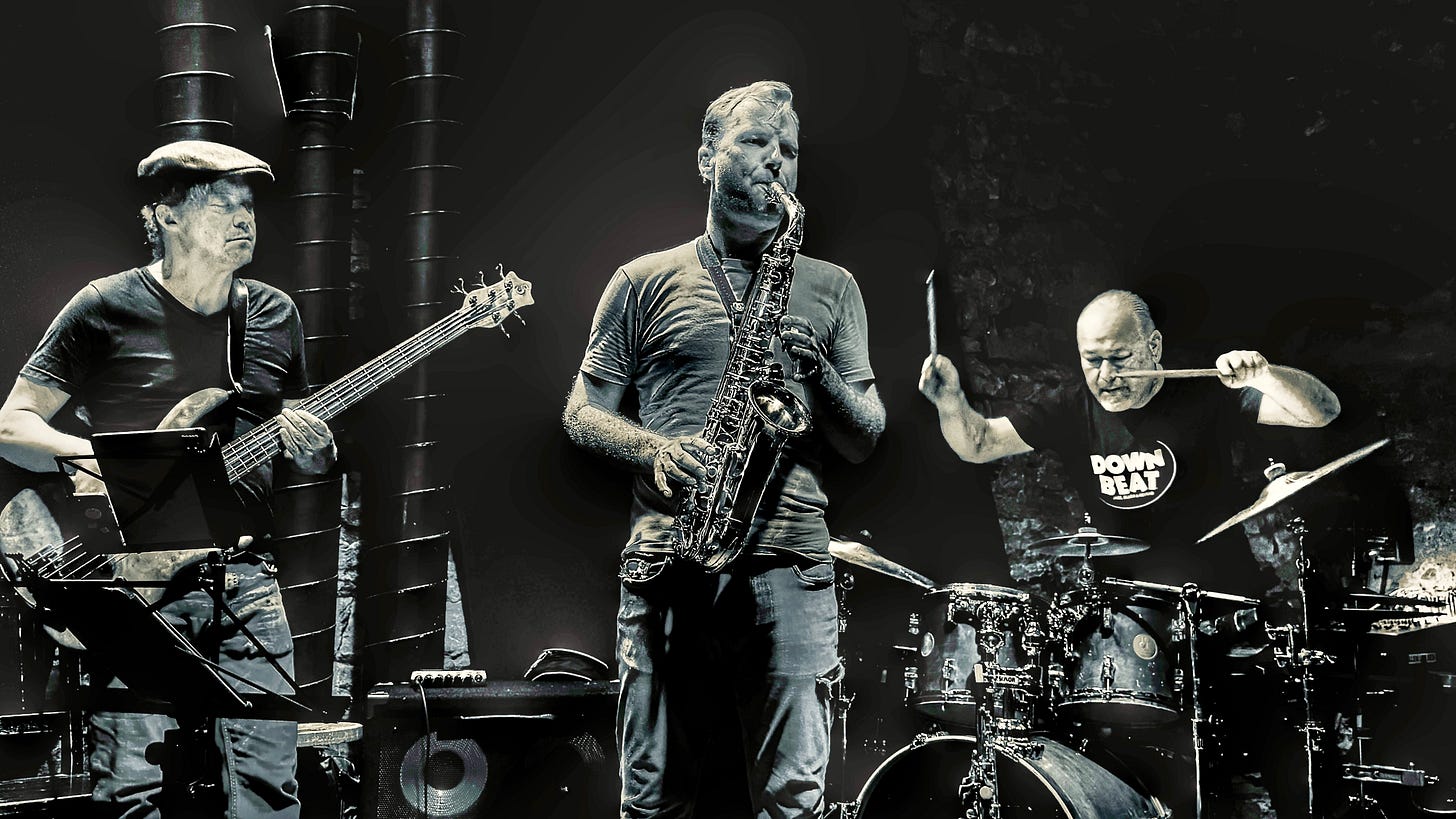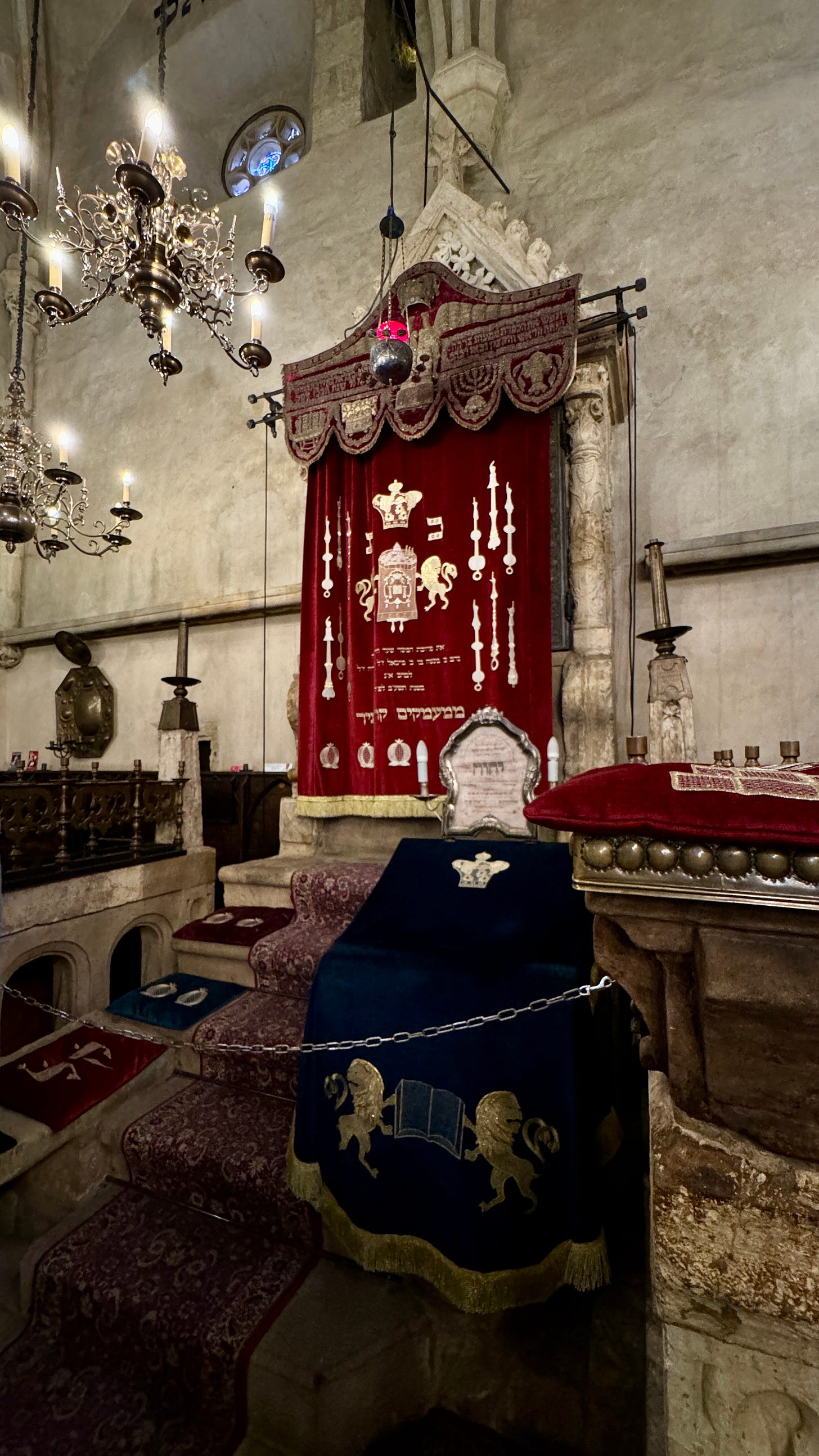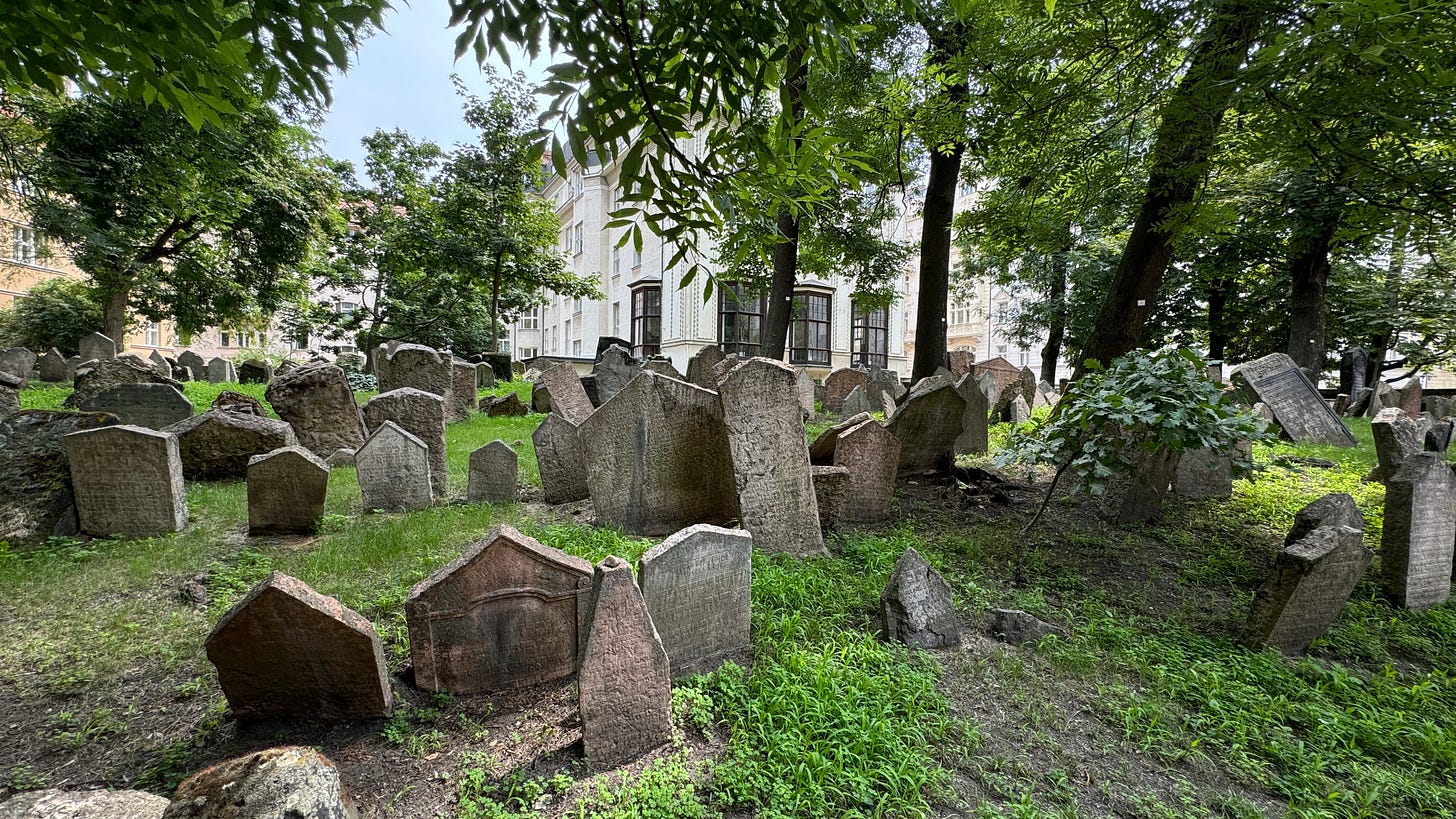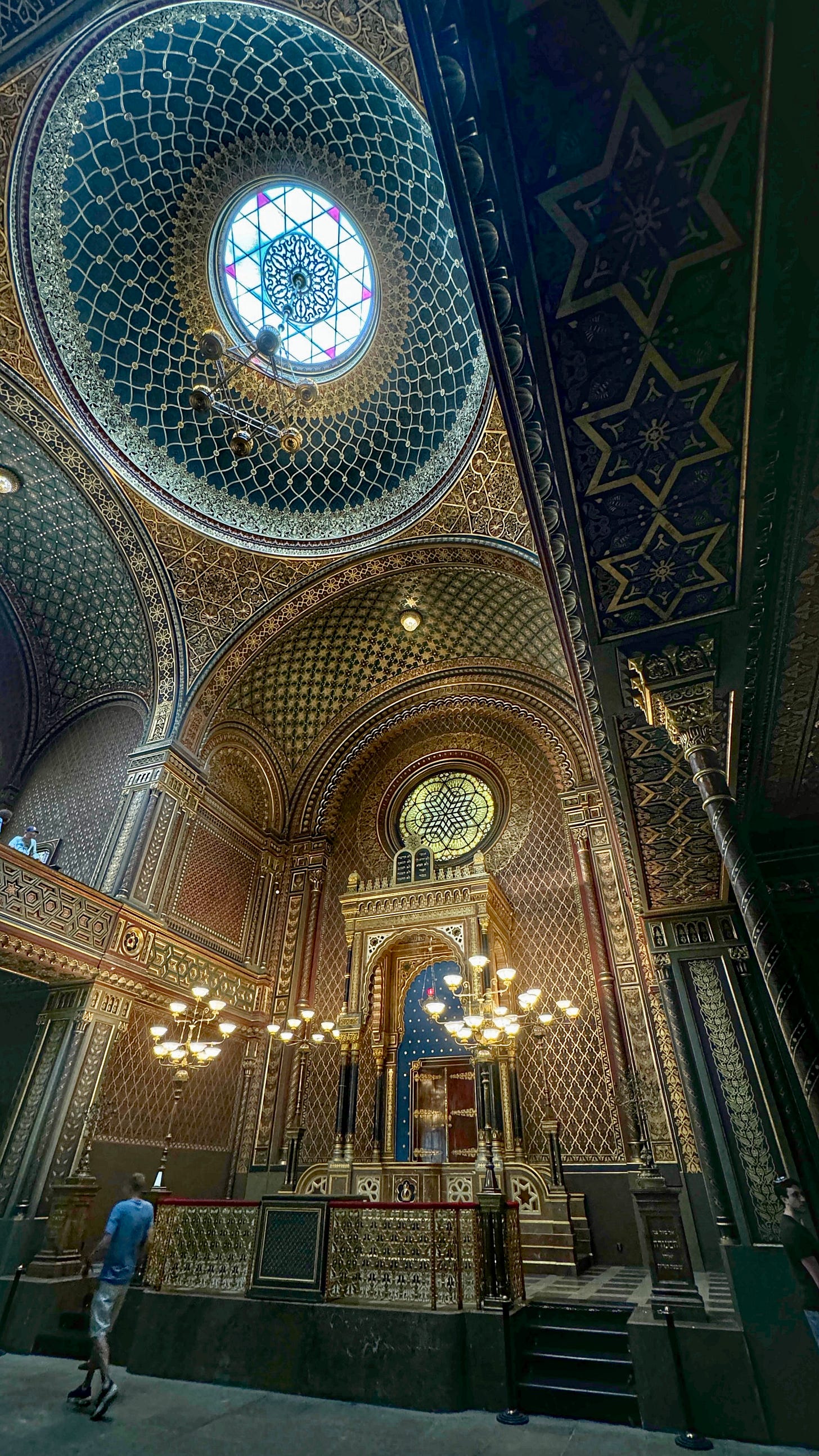I've just returned from a few days in Prague, my first time there. Such a beautiful city with a gorgeous riverfront, narrow alleys to explore, incredible architecture that takes you back in time, and amazing jazz.
But it’s weird to be a Jew in Prague. While there is a remnant of Jews still living there, you can't help but be struck by the museum-like nature of the Jewish presence in the city. Yes, there are synagogues in the Jewish Quarter built hundreds of years ago just off the Old Town Square that are still active. The Altneu Synagogue was built around 1270 and there are still services on Shabbat.
But the Jewish community no longer plays a vibrant role in the city. Of the 120,000 Jews of what is now the Czech Republic, about 80,000 were murdered by the Nazis. The current Jewish population is something between 10,000 and 20,000 and they identify as Jewish in varying degrees.
Jewish life may not be vibrant but tourism for Jews and about Jews is quite healthy. The Jewish part of town is thronged with visitors eager to see those old synagogues, the Holocaust memorial, and the Jewish cemetery.
The tombstones are in disarray but what struck me about the cemetery is how big it is and that’s it’s essentially intact. Jews were buried there between the 15th and 18th century. Sitting on very valuable real estate in the heart of Prague’s Old Town, the cemetery has somehow survived the Nazis, the Communists, and the real estate developers.
There is much that is Jewish to see in Prague and much of it is beautiful.
The most famous face of the city—adorning tote bags, and other tourist items—is Kafka, the tormented Jew. He also gets two statues and a museum. The second most famous creature of Prague might be the golem, the forerunner of Frankenstein, a clay figure that came to life under mystical rabbinical incantations to protect the Jews. Prague is so Jewish. The only thing missing are the Jews. Or at least Jews in the numbers and influence they once had.
As a Jew visiting Prague, it is easy to mourn what has been lost--the lives, the scholarship (Prague's rabbinic scholars were extraordinary), and the cultural role that Jews played in the city. So it is, in much if not all of Europe. Read Stefan Zweig’s The World of Yesterday to understand what was lost in Vienna. And yes, some Jews still live in Europe 80 years after the Holocaust. But the Jewishness of Prague and Vienna and similar capitals is in the past rather than the present. There is something macabre about savoring the Jewishness of Prague’s past knowing how the story ended. Celebrating Kafka seems almost unseemly. He died at the age of 40 of tuberculosis in 1924. A tragedy, but he was spared the Holocaust. His three sisters were murdered in the Nazi death camps along with tens of thousands of their fellow Jews from the Czech lands of the day.
I knew this of course before I went to Prague, at least in some abstract sense. Visiting in person makes vivid what has been lost. But one night in Prague, I realized that the lost Jewishness of Prague has a very strange bedfellow. I was sitting in St. Clement’s Cathedral listening to an hour-long concert of classical music’s greatest hits—Mozart, Bach, Pachelbel, Schubert, Vivaldi, and others. I realized that Judaism is not the only religion that is a shell of its former self in the sense of its role in the daily life and culture of a great city. The same would be true of Christianity.
There are a number of churches in Prague that offer nightly concerts like the one we listened to. St Clement’s Cathedral is a magnificent high-vaulted church filled with dramatic sculpture and frescoes built between 1711 and 1715. And I thought, this too is little more than a museum or maybe the word is mausoleum. The Christian impulse that built such magnificent cathedrals and inspired some of the finest music human beings have ever composed, plays no role in the current culture of Prague any more than Judaism does.
It was a strange moment for me, this realization of kinship between the two sister religions. It does make a difference that Christians were not herded into railroad cars and murdered as the Jews were. But both religions are essentially being kept alive by a remnant, a remnant that is not embedded in a serious way in the life of the city other than as a tourist attraction. I don't remember who made the observation but it is a deep one, that some of the greatest creations of human beings--the cathedrals in particular, but you could also include the music--were inspired by something very few Europeans believe in any longer—Christianity. In 1950, 94% of what is now the Czech Republic identified themselves in the census as Christians. By 2021, the number was 12%. In 2021, 48% said they did have a religion. Another 30% chose not to answer the question. Day-to-day life in Prague today is mostly free of any kind of traditional religious life in any meaningful way.
It's a bit ironic for a Jew to sit in a church in Prague and reflect on what has been lost with the demise of Christianity in Europe, a Christianity, that when those churches were built (and there are many in Prague much older and much grander than the one where I heard the concert), was not particularly good to the Jews. But something has been lost. You look at the statuary and the frescoes and you see an attempt to inspire human beings to rise above themselves and aspire to greatness. You see a vision of what humanity can be and of a better world. As a Jew thinking about Christianity in Europe, what comes to mind is the Inquisition, the blood libels, the pogroms, and the church-driven expulsions from country after country. It’s harder to remember that Christianity was a revolution in how we human beings see ourselves. The post-Christian attempts to inspire a new way of seeing ourselves, communism and fascism, dwarf Christianity in their cruelty to the Jews and to humankind generally.
I’m grateful that Christianity has softened its view of the Jews since the Middle Ages. But I wonder if that is a consequence of taking religion less seriously. As faith weakens and wanes, you don’t get as worked up about heretics and apostates. That’s great for the Jews. But maybe that ebbing of faith means you also stop building soaring cathedrals and composing soaring music. Don’t get me wrong—I don’t bemoan the death of Christian Jew-hatred and the blood libels. But what is clear is that the soaring music and soaring cathedrals are, like the synagogues of Prague, ancient history, a remnant of what once was.









I have some thoughts but will share most privately except to say that the line about the Nazis and communists and developers is you at your best.
Have you been to Budapest? I found the Jewish history there - and the way it is marked through tourism - even more disturbing, precisely in the way you describe. Thanks for this.